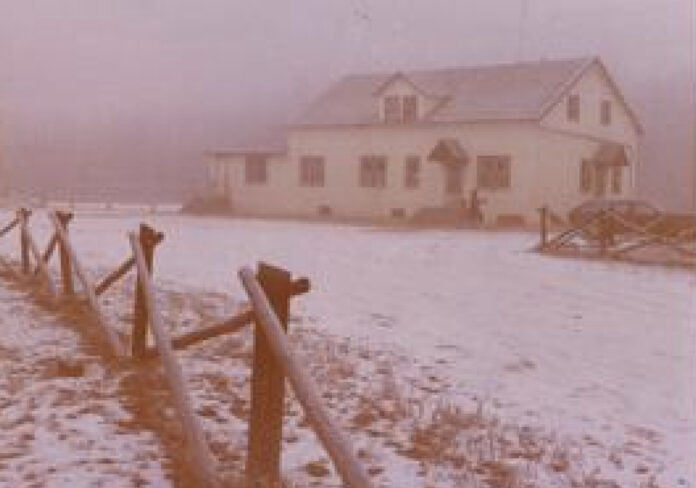
Warning: This story contains details that can be upsetting to readers
The Saskatchewan RCMP Historical Case Unit – North is investigating circumstances surrounding a death that might have occurred at the Timber Bay Children’s Home near Montreal Lake in 1974.
“This is a historical complaint – dating back decades. I can’t imagine how difficult it must be for someone to come forward and speak with police after so much time has passed,” said Superintendent Vince Foy, Officer in Charge of the Saskatchewan RCMP Major Crime Unit.
“With the complaint being historical in nature, part of the investigative process will be to meet with multiple individuals in several communities. Investigators will listen to those who choose to come forward and will follow up on any information received.”
The RCMP investigation comes as Indigenous leadership in the north are renewing calls for the federal government to recognize Timber Bay as a residential school so that survivors can be compensated.
The children’s home at Timber Bay was funded by both the federal and provincial governments under various names. It was run by the Northern Canada Evangelical Mission from 1952 until 1969 when the Brethren in Christ Church, a Mennonite denomination, took over.
Indigenous children from around northern Saskatchewan were sent there and to the Montreal Lake First Nation Reserve School until the children’s home closed its doors 1994.
But Timber Bay was not included in the federal Indian Residential School Settlement process established as part of the Truth and Reconciliation Commission. First Nations have been fighting for the school’s recognition under Article 12 of the Residential School Act, so far to no avail.
Lac La Ronge Indian Band Chief Tammy Cook-Searson said survivors reached out again after 215 children’s remains were uncovered at the Kamloops Indian Residential School in B.C.
Reports have confirmed more than 1,300 unmarked graves at the sites of former residential schools in western Canada between May and August, 2021. Those numbers continue to rise.
Cook-Searson said meetings are being planned to “restart the discussion” for Timber Bay survivors to be “compensated and recognized for the harm they suffered at that school.”
As First Nations around Canada, including Lac La Ronge, have now received funding to search for unmarked graves, Timber Bay survivors could be left to their own devices unless that happens.
“It’s been many years. First, I lobbied the then Prime Minister Stephen Harper, and we weren’t getting anywhere with that. So we wrote letters trying to get it added, but it wasn’t working. So, we applied to court,” Cook-Searson said.
The Saskatchewan Court of Appeal ruled against the Lac La Ronge Indian Band in 2017 over Timber Bay’s status and Supreme Court of Canada declined to hear the case. Cook-Searson said that in light of recent developments there might be a chance that Canada will begin to listen.
“We had calls from Timber Bay survivors, former students, just asking us to try and find another way,” Cook-Searson said.
“Prince Albert Grand Council Chief Brain Hardlotte has engaged a group of us; which is (Montreal Lake Cree Nation Chief) Joyce Naytowhow-McLeod, (Peter Ballantyne Cree Nation Chief) Karen Bird, myself and former students,” Cook-Searson said.
She said the office of Jim Carr, Prime Minister Justin Trudeau’s special representative for the prairies, has since reached out asking for a meeting to start the discussion.
The historical complaint was reported to Saskatchewan RCMP on October 21, 2020. The RCMP said that due to the easing of COVID-19 restrictions, the Historical Case Unit obtained a first recorded statement on July 8, 2021. No charges have been laid so far as the investigation is in its early stages.
This is the only case involving a residential school currently being investigated by the Saskatchewan RCMP Historical Case Unit. Anyone with information is asked to please call 310-RCMP to get in contact with investigators or to contact their local detachment or police service.
The RCMP said protecting the privacy and acknowledging the trauma of those involved is a priority and committed to investigate any allegations that are made.
A national 24-hour Indian Residential School Crisis Line is available to support survivors and those affected. You can access emotional and crisis support referral services by calling 1-866-925-4419.

